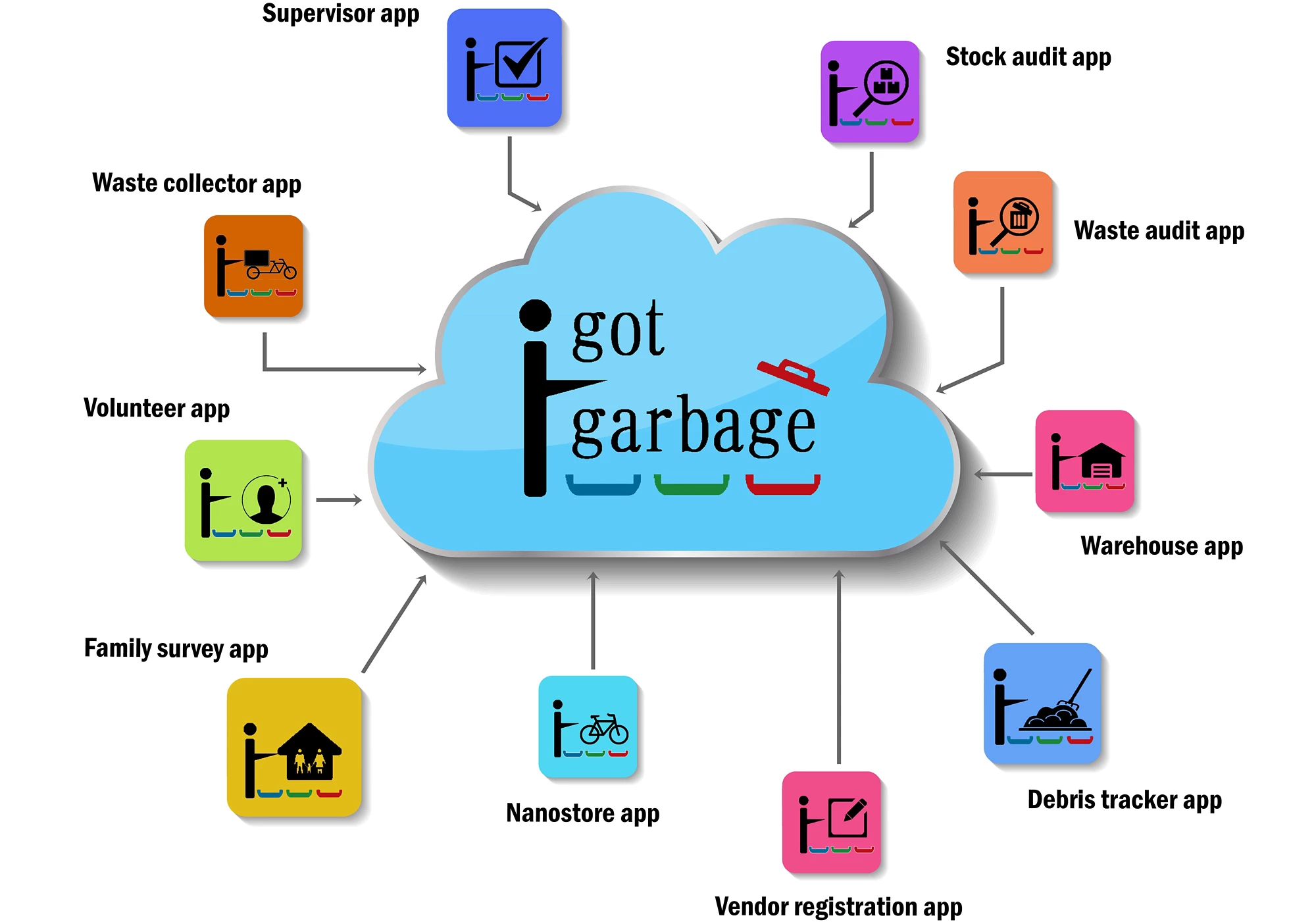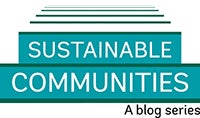
The World Bank recently hosted five individuals representing organizations and projects that use information and communications technology (ICT) to engage citizens with local waste services . Their varied approaches reveal incentive models that effectively lead to strategic behavior change.
Recyclebank (Javier Flaim, CEO)
As a waste-focused behavior change program, Recyclebank combines education, incentives, technology and community engagement to encourage more than 4 million members to make better purchasing and disposal habits. By taking green actions and registering online, residents can earn points towards rewards ( subscriptions, discounts, donations). Recyclebank creates public/private partnerships with municipalities/communities and businesses to power this platform. Recylebank’s 300+ community partners have recycled nearly 1.5 billion pounds of materials and pledged to take 216 million green actions while earning more than $60 million in rewards in 2014 alone.
I Got Garbage (Prashant Mehra, Founder)
In India, 1.5 million waste pickers power the country’s recycling, but at a severe cost to their health and wellbeing . Prashant Mehra, a social ‘intrapraneur’ at Mindtree, presented I Got Garbage, a mobile and web platform he founded in Bangalore that empowers waste pickers by connecting them with households. Households enter into long-term relationships with them for recyclables pickup and can buy tools from them for home composting. This model of citizen participation puts waste pickers away from the dangers of open dumps while enabling more comprehensive and efficient waste collection. It converts waste pickers into recycling managers. Prashant highlighted the longevity of such platforms as a key benefit of ICT for engaging citizens. But just as important as the platform is building a functional ecosystem that motivates user adoption. Currently, the platform supports over 10,000 waste pickers, has generated over 100 million Rupees in collective revenue, and is expanding to 27 cities.
World Bank MOPA Project in Mozambique (Jean Barroca, Innovation Consultant)
MOPA is a World Bank project in Maputo, Mozambique that addresses a need for improved urban waste management systems stemming from limited municipal resources and insufficient data. The solution, MOPA (Monitoria Participativa Maputo), uses citizen-driven data and analytics to help cities plan and manage their services. Citizens report waste-related issues to the municipal government using mobile phones. This information is fed into a real-time report of issues and resolutions that is open to the public. Data visualizations and statistics allow city officials to address problems as they arise and monitor service quality. MOPA opens a channel of communication between the municipality and the people, including those from low-income areas that traditionally lack proper waste services.
EMASEO (Carlos Sagasti, Former General Manager)
Public Metropolitan Sanitation Company of Quito, EMASEO EP, is the municipal waste collection company of Quito, Ecuador, which serves 2.2 million residents and gathers 1900 tons of waste daily.
A decade ago, Quito suffered from a severe waste problem. Dumpsters overflowed, collection services were insufficient, and citizens had limited awareness of the public waste systems and procedures. In response, EMASEO used ICT to monitor services in real-time, optimize internal process management, and improve external cleaning services. Using GIS and handheld devices, they also monitored household behavior and provided door-to-door information on ways to participate in public waste collection, schedules, and local disposal sites.
World Bank Development Policy Loans in Morocco (Maria Sarraf, Team Leader)
In order to gain public feedback on waste services, citizen report cards were introduced in five Moroccan cities as part of the World Bank’s Development Policy Loans for Solid Waste Management. In this case, due to low local technology access, face-to-face communication is used to garner citizen feedback on issues including service quality and willingness to sort and recycle household waste. Results are discussed at town hall meetings with residents, private operators and the municipality. Parties commit to a set of actions to improve waste services and the outcomes influence the contract of the private waste operator. The national waste management program financially incentivizes local governments to use citizen report cards, citizens provide feedback to improve services, and private operators can improve their image and maintain contracts.
While these case studies provided a broad view of ways that ICT can be used to facilitate citizen engagement, a clear takeaway was that technology is a powerful tool but not a complete solution. Technology access is not universal, and communities that are poor or elderly may be best reached using “offline” methods. Further, community engagement requires strong incentives – municipalities must understand what type of measures can truly motivate behavior change, whether financial, physical, or social.
In your communities, how has ICT connected citizens with municipal services ? Where does ICT excel and where does it fall short?





Join the Conversation